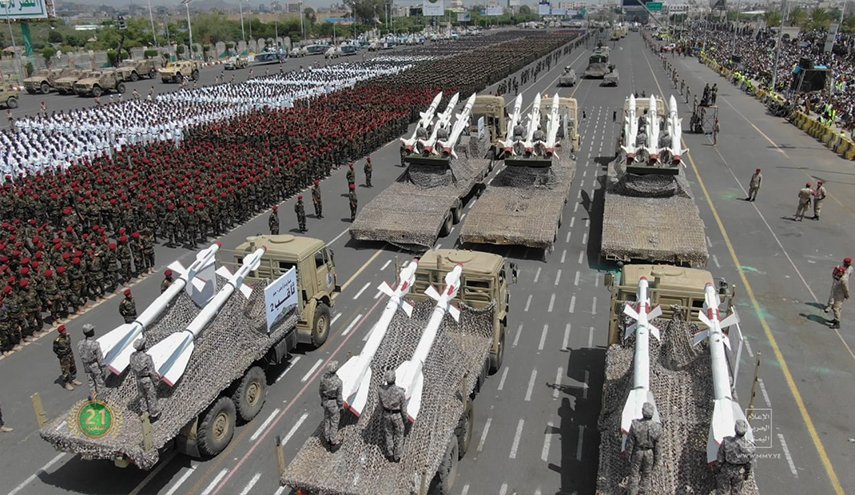Which areas of Yemen were bombed?
Israeli warplanes have carried out strikes on vital Yemeni facilities, including ports, infrastructure and power plants. Among the sites are the two central power plants of Haziz and Dhahban, south and north of the capital Sana’a, which Al-Masirah news network said had cut off power to thousands of households. Meanwhile, other strikes in the coastal province of Hudaydah targeted the city's port and the Ras Issa oil terminal, killing and wounding 9. Two sources in the port of Hudaydah told Reuters that the Israeli strike destroyed a tugboat, but the port has several other vessels capable of towing ships to the dock.
Launching hypersonic missiles
The spokesman to Yemeni armed forces General Yahya Saree said that Yemen fired two hypersonic missiles at "two special and sensitive military targets in the occupied Yafa region," referring to Tel Aviv. The attack with such missiles showed that Yemenis have not yet shown all of their play cards and odds are they will use new weapons in their attacks on Israel.
On the other hand, the Yemeni hypersonic missile strike on targets in the occupied territories has once again shown the weakness of the Israeli air defense systems. This is despite the fact that over the past year, during the Gaza war, the Israeli forces had claimed to be using the latest technologies to strengthen the much-vaunted Iron Dome air defense system.
Why was Yemen bombed?
Israeli security officials have said that Tel Aviv is preparing for a large-scale attack on Yemen. Israel Broadcasting Corporation quoted an Israeli source as saying that they have sent a message to the Americans and that they expect their attacks on Yemen to surge. The latest attack on Yemen is the third Israeli attack since the start of the Gaza war, the first in the past month and the second since last September, which targeted Hudaydah port and power plant.
Israeli officials claim that Yemen is a center for Iranian weapons and missiles. Israeli army has said that the Yemeni army is using the port of Hudaydah to receive Iranian weapons. Indeed, some of the attacks by the Israeli regime have targeted the command centers of the forces in Sana'a, but it does not seem that these attacks have done anything to stop Yemeni operations.
Western analysts and intelligence services have long accused Iran of arming Yemeni forces, but Tehran denies this claim, and airstrikes by the US-Britain coalition have so far done little to deter Yemeni forces. Eleonora Ardmagni, a Yemen expert and Senior Associate Research Fellow at the Italian Institute for International Political Studies, believes that the Israeli airstrike on Hudaydah will further strengthen the Yemenis, just as previous American and British attacks that have started since January on Yemeni military sites have had no effect on Yemeni forces.
Israeli Prime Minister Benjamin Netanyahu said in a statement that "after Hamas, Hezbollah and Bashar al-Assad in Syria, the Yemeni forces are almost the last remaining arm of the Iranian axis, and the Yemenis will learn that those who attack Israel will pay the price." Such claims had previously been made by Netanyahu against Hezbollah in Lebanon and Hamas in Gaza. Although Netanyahu had stated that his goal in the war in Gaza and then Lebanon was to destroy Hamas and Hezbollah, neither of these goals have been achieved despite the heavy war by Tel Aviv, as the latter has failed to eliminate any of these resistance movements.
Earlier, Aharon Ze'evi-Farkash, the former head of Israeli
Military Intelligence Directorate (Aman) had said that Gaza war
continues while Israel has not set any ultimate aim. The army cannot
fight a war of whose ultimate aim it is not aware. The Washington-based
Center for Strategic and International Studies (CSIS) in its analysis of
the Israeli war against Hamas said that Netanyahu said "if you want
peace, you should eliminate Hamas, if you want security, eliminate
Hamas, if you want a future for Israel, the Palestinians, and the Middle
East, eliminate Hamas. President Biden has agreed that Hamas should be
eliminated." However, Israeli has not been able to eliminate Hamas and
it is unlikely Netanyahu can destroy the Yemeni forces as he failed to
defeat Hamas.
/129

